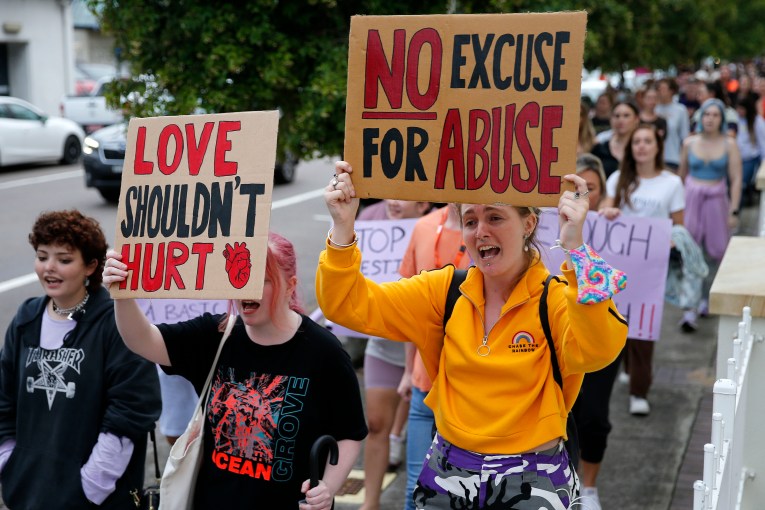World leaders will be asked to back Australia’s fight with Facebook as global legislators warned the tech giant’s block on news was an example of the company’s stranglehold on market power.
The social media giant shocked Australia on Thursday when it blocked all media content from its platform in a stunning escalation of a dispute with the government over paying for content.
On Thursday night, Prime Minister Scott Morrison raised the issue with India’s Prime Minister Narendra Modi, the SMH reports, as he labelled Facebook “arrogant” and said Australia would not roll over.
Mr Morrison said he regularly spoke with other world leaders about big tech, in a reminder to Facebook that he implored countries to combat the publishing of terrorist content on social media.
“These actions will only confirm the concerns that an increasing number of countries are expressing about the behaviour of big tech companies, who think they are bigger than governments and that the rules should not apply to them,” Mr Morrison said.
“They may be changing the world, but that doesn’t mean they run it.”
A British MP said his country was “all behind Australia” and that Facebook’s actions would stiffen the resolve of governments around the world to get tough with tech giants.
“This action – this bully boy action – that they’ve undertaken in Australia will I think ignite a desire to go further amongst legislators around the world,” said Julian Knight, chair of the British Parliament’s digital, culture, media and sport committee.
“We represent people and I’m sorry but you can’t run bulldozer over that – and if Facebook thinks it’ll do that it will face the same long-term ire as the likes of big oil and tobacco,” Mr Knight said.
“If you gain value from carrying trusted sources of information – in the same way as if you gain value for example from music streams – then those that carry those and then sell advertising off the back of that value, should pay for it.
“I think they’re almost using Australia as a test of strength for global democracies as to whether or not they wish to impose restrictions on the way in which they do business, or corrections to the way in which they operate within markets. So, we’re all behind Australia in my view.”
Asked if Facebook and other tech giants had got too big for their boots, Knight said: “That’s the understatement of the century isn’t it?”
“The way in which you tackle the tech giants in a positive way is to look at competition,” he said.

Scott Morrison says Australia will not scrap its media bargaining code legislation. Photo: AAP
The head of News Media Association, Britain’s news media trade group, said Facebook’s ban during a global pandemic was “a classic example of a monopoly power being the school yard bully, trying to protect its dominant position with scant regard for the citizens and customers it supposedly serves.”
“Facebook’s actions in Australia demonstrate precisely why we need jurisdictions across the globe, including the UK, to coordinate to deliver robust regulation to create a truly level playing between the tech giants and news publishers,” chairman Henry Faure Walker said.
The British government took a more cautious line than some of Facebook’s fiercer critics.
“It is vital people can access accurate news and information from a range of sources, particularly during a global pandemic,” a government spokesman said in a statement.
“We encourage Facebook and the Australian government to work together to find a solution.”
In its sweep of news pages on Thursday, Facebook also shut down a raft of health and emergency services, many of which have been restored.
Facebook claimed it was left with no choice, arguing the bargaining code was poorly worded.
“As the law does not provide clear guidance on the definition of news content, we have taken a broad definition in order to respect the law as drafted,” it said in a statement.
“However, we will reverse any pages that are inadvertently impacted.”
It was the ‘wrong thing’ to do
Shadow communications minister Michelle Rowland told ABC’s Q&A program on Thursday night that the blanket ban has called into question if this could be “the beginning of the end” for Facebook.
Given 40 per cent of Australians log into the social network to get their news, Ms Rowland said Facebook might have inadvertently made its product “completely uncompelling” by preventing them from viewing or sharing content from media outlets.
The fact Facebook “enjoys substantial market power” means it is able to act in this way, she said, adding that “the whole reason why regulation needed to be devised” was to ensure their “market power was kept in check”.
Tweet from @QandA
Communications Minister Paul Fletcher agreed, saying Facebook had done the “wrong thing”.
He pointed out that it was not just news sites that have been censored.
“Some of the consequences for emergency services and health, the Facebook pages of government departments being blocked, 1800 Respect has been blocked,” Mr Fletcher said.
“We’re very clear that … we don’t want [Facebook] to be blocking any pages but none of these pages would fall within the definition of the news media code.
“Even on the terms of their objections, it makes no sense.”
ESafety Commissioner and former Facebook employee Inman Grant said the decision to block Australian users was more about setting a precedent than it is about Australia.
Ms Grant said Facebook wanted to show governments around the world the risk they take if they go up against the tech giant.
“They let Google take all the body blows and the shrapnel and went with the nuclear option without any warning,” she said.
“They deployed language, natural language processing systems that had glitches and then you ended up with this overblocking.
“It shows how much market power that they have and what steps they’re willing to take.”
-with AAP









